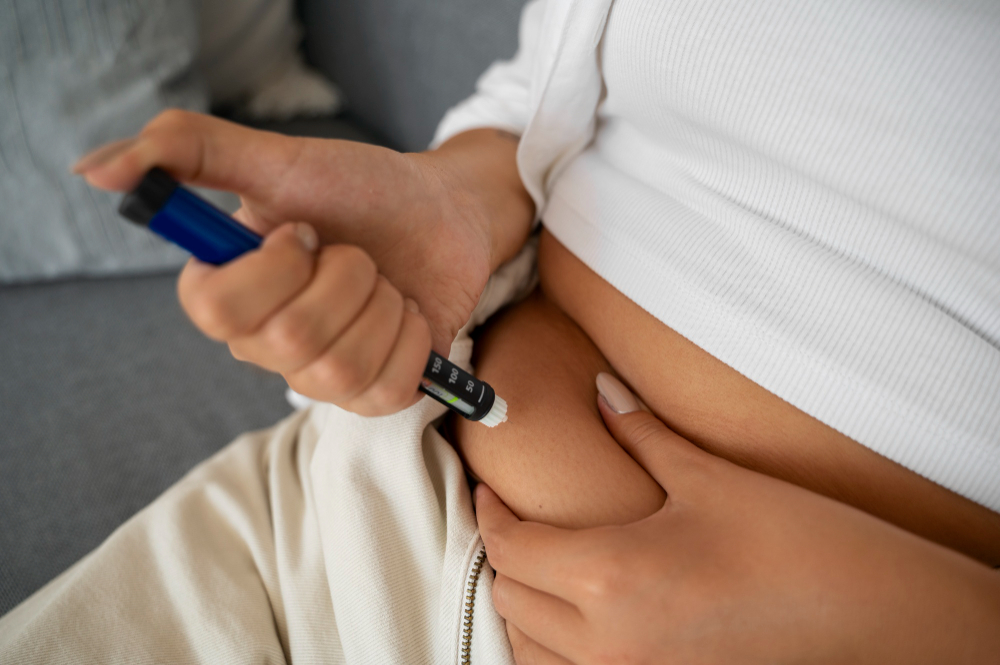Understanding Medicare coverage can be confusing, especially regarding essential medications like insulin. Insulin is critical in diabetes care, helping millions manage their blood sugar levels daily. Knowing which insulin types are covered under different parts is essential if you rely on Medicare for prescription coverage. One common question is: What kind of insulin is not covered by Medicare Part D?

In simple terms, Medicare Part D generally covers insulin you inject with a pen or syringe. This includes most insulin used at home for daily blood sugar management. However, there is an essential distinction regarding insulin delivered through specific devices. Insulin used in an insulin pump is not covered by Medicare Part D. Instead, it is usually covered under Medicare Part B, as it is considered part of durable medical equipment supplies. This detail can be confusing, but understanding helps ensure you receive proper coverage without unexpected costs.
At Viva Health Pharmacy, we want to help you navigate these coverage details to get the most out of your Medicare benefits. Managing your insulin-diabetes care involves more than just having access to insulin; it also means understanding how insurance works. Knowing what Medicare Part D covers and does not, you can plan and avoid surprises at the pharmacy counter. Our goal is to keep you informed, making it easier to maintain stable blood sugar levels and stay on track with your treatment plan.
If you’re new to Medicare, you might wonder why insulin delivered by a pump falls under a different category. Medicare considers insulin pumps as medical equipment rather than a simple prescription drug. The insulin that goes into the pump is treated as part of that equipment’s supply. Medicare Part B covers durable medical equipment, which includes insulin pumps, test strips, and related supplies. As a result, the insulin used in the pump falls under Part B coverage, not Part D. While this may seem complicated, understanding the difference can save you time and frustration.
Medicare Part D generally covers these medications when they are on your plan’s formulary for patients who inject insulin using a syringe or pen. You can expect Part D coverage if you take a commonly used insulin brand and administer it at home. Still, confirming with your chosen Medicare Part D plan is wise to ensure that your specific insulin type is included. Coverage can vary from one plan to another, making it necessary to review your annual plan details or speak with a pharmacist at Viva Health Pharmacy for guidance.
Comparing costs and coverage is an essential step in insulin-diabetes care.
If you rely on an insulin pump, understanding that your insulin supply falls under Part B instead of Part D can influence your overall expenses. Part B coverage often involves different cost-sharing rules than Part D plans. For example, you may pay a percentage of the supplies covered under Part B, and meeting your Part B deductible may apply. Knowing these details allows you to budget more effectively for your care.
The complexity of Medicare coverage can be overwhelming, but you don’t have to navigate it alone. Our team at Viva Health Pharmacy has experience guiding patients through the Medicare landscape. We can help you understand your coverage, identify which type of insulin is not covered by Medicare Part D, and direct you to resources that explain the differences in coverage categories. With the right information, you can feel confident in your healthcare decisions.
When you think about insulin and Medicare Part D, remember that not all insulin is the same in the eyes of insurance. Insulin delivered by the pump is considered part of your medical equipment supplies, placing it under Part B. On the other hand, the insulin you inject daily with a syringe or pen typically falls under Part D coverage, along with other prescription drugs. This distinction is crucial when comparing costs, choosing a plan, or deciding which insulin delivery method best fits your lifestyle.
If you’re considering switching from injections to a pump or vice versa, weigh the insurance implications. Using a pump can offer some patients convenience and tighter blood sugar control. However, the coverage differences might mean changes in out-of-pocket costs. On the flip side, sticking to injections means your insulin is usually covered under Part D, which might simplify your insurance claims. Whichever path you choose, remember that our pharmacists at Viva Health Pharmacy are here to help you compare options.
For those enrolled in Medicare Advantage plans, coverage rules can differ slightly. Although Medicare Advantage plans are required to provide at least the same benefits as Original Medicare, their structure might affect how insulin is covered. Some Medicare Advantage plans incorporate Part D coverage differently. Insulin for pumps remains a Part B benefit, while injected insulin remains Part D. It’s wise to review your plan’s details or consult the insurer’s customer service line for clarity.
As a patient, your goal is to maintain stable blood sugar levels, manage your diabetes effectively, and minimize complications. Understanding coverage details may seem like a minor aspect of insulin-diabetes care, but it can significantly impact your costs, treatment adherence, and overall well-being. When you know that Medicare Part D doesn’t cover insulin delivered by a pump, you can plan your healthcare strategy accordingly.
At Viva Health Pharmacy, we believe that informed patients make better decisions. We encourage you to use all available resources—talk to your doctor about your insulin choices, speak with a pharmacist for clarification, and review Medicare’s official website for updated information. Knowledge is power, and being aware that insulin for pumps is excluded from Part D coverage empowers you to choose the best method for your unique situation.
Seasoned Medicare beneficiaries often learn these coverage nuances over time, but if you’re new to Medicare, don’t hesitate to ask questions. Our pharmacists at Viva Health Pharmacy frequently address inquiries about coverage, explaining differences between Part B and Part D, and guiding patients through the complexities of insurance policies. By seeking help early, you avoid confusion and surprises that might affect your access to essential medications.
When navigating Medicare coverage, remember that certain exceptions or special rules may apply. Sometimes, special circumstances can influence how your insulin is covered. For instance, if you have other forms of insurance or qualify for additional assistance programs, your costs might differ from standard guidelines. Again, consulting with a knowledgeable pharmacist or an insurance advisor can help you understand any unique factors affecting your coverage.
It’s also crucial to stay updated on changes in Medicare policies. Medicare may adjust formularies, introduce new rules, or revise cost-sharing requirements each year. Keeping track of these updates ensures that you always have the latest information. Our team at Viva Health Pharmacy does its best to stay informed and pass that knowledge on to our patients. By staying proactive, you can adjust your choices or budgets as needed.
If you ever feel lost or overwhelmed, remember that you are not alone. Many patients share the same questions and concerns about insulin-diabetes care under Medicare. Online forums, support groups, and community workshops can provide additional guidance. Just verify any information you find by consulting reputable sources, like Medicare’s official website or speaking directly with a healthcare professional.
Don’t forget that coverage rules differ from person to person. Your neighbour or friend might have a different plan, resulting in variations in coverage for similar medications. Focus on understanding your specific plan’s details. If you switch plans during Medicare’s open enrollment period, reassessing coverage for insulin and supplies becomes essential. This periodic review ensures that your healthcare strategy remains up-to-date and cost-effective.
Over the years, patients have found that preparing a list of questions before contacting their insurer or visiting the pharmacy can be immensely helpful. Asking about coverage limitations, preferred insulin brands, and how often you need to recheck plan details can lead to more precise answers. Knowledge gained through these conversations allows you to manage your diabetes more confidently.
At Viva Health Pharmacy, we aim to help you feel more secure about your insulin options. Our pharmacy staff can guide you in selecting the right insulin types, understanding coverage limitations, and finding ways to minimize costs. By combining professional advice, reliable medications, and user-friendly services, we strive to support your health journey at every turn.
While Medicare Part D doesn’t cover insulin administered by a pump, remember that patients still have choices. You can discuss switching to a different insulin form covered by Part D or explore financial assistance programs that might offset higher costs. The key is communication—speak with your doctor, consult your pharmacist, and stay open to adjusting your approach.
Think of coverage details as one piece of the broader diabetes care puzzle. By understanding insurance rules, you can better manage your treatment plan and avoid unwelcome surprises. Your health is a priority, and investing time in mastering these details pays off in greater peace of mind.
As we conclude this exploration, remember that knowledge empowers you. Understanding that Medicare Part D does not cover pump insulin helps you plan effectively. Whether you stick with injections or explore other options, having clarity on coverage rules keeps you in control of your insulin-diabetes care.
At Viva Health Pharmacy, we encourage you to ask questions, seek advice, and never hesitate to look for help. In healthcare, change is constant, but with the correct information, you can adapt and thrive. Keep learning, stay informed, and trust our team at Viva Health Pharmacy to support your health goals at every step.







